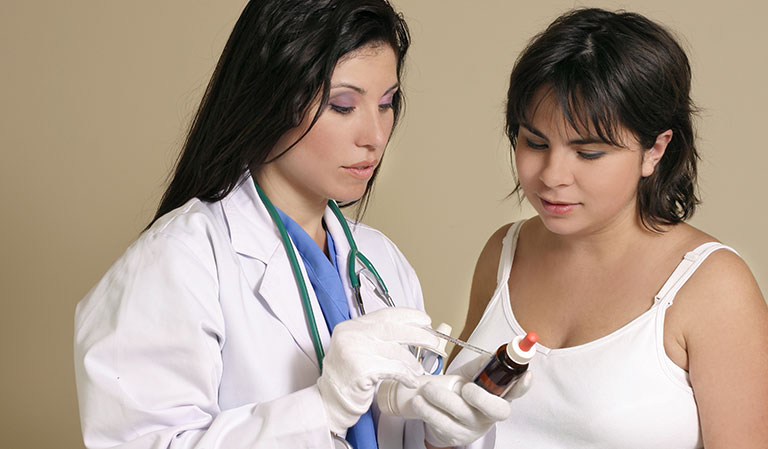Located at 20 Old Brompton Road – Just Steps from ![]() South Kensington Tube. Easy Access, Always.
South Kensington Tube. Easy Access, Always.
What You Need To Know About Preconception Health

Preconception health refers to the health of a woman before getting pregnant. It means having a clear understanding of the health condition of the woman and the risk factors that could affect her and her unborn baby when she eventually becomes pregnant.
In addition to our sexual health services, we provide advice on relationships, conception and contraception. We have our doctors always on standby to offer you support and valuable advice on how to practice good sexual health.
Why Is Preconception Health Important?
Every woman needs to consider her health, whether she is planning to get pregnant or not. This is because about half of the pregnancies that occur are unplanned for. Pregnancies that are not planned for are generally at a higher risk of preterm labour and babies with low birth weight.
Preconception health is also essential — about 1 in every 8 babies is born prematurely despite all the advancements in prenatal care and medicine as a whole. Though researchers are working day and night on how to put an end to preterm birth, experts still actively advise women to be in a good state of health before getting pregnant. This can be achieved by treating any health issue and risks before attempting pregnancy. This will help you prevent problems that would have a negative effect on your baby.
Five Fundamental Ways To Boost Your Preconception Health
Preconception health is not only a concern for women alone; the men, too, should be actively involved in it. They should work together in preparing for pregnancy for not less than three months before becoming pregnant.
Some actions should be taken even before the three months of consistent preparation. These actions include: attaining a healthy weight, quitting smoking and being selective of the medications you use.
To boost your preconception health, you should do the following essential things:
- Quit smoking and stay free from alcohol.
- Take about 400 to 800 micrograms (mg) of folic acid daily. This will help reduce the risk of your baby having congenital disabilities, which may affect their brain or spine (e.g. spina bifida). It is advised that every woman take folic acid daily. You can talk to your doctor about your concerns on folic acid. Your doctor may prescribe some prenatal vitamins which have folic acid in a high amount.
- Put every health condition you have under control before trying to become pregnant. Health conditions like diabetes, asthma, epilepsy, oral health and obesity can negatively affect your pregnancy.
- Let your doctor know about the over-the-counter drugs, including your dietary supplements you are taking so he/she can understand when to advise you to stop. Also, ensure you are up-to-date with your vaccines.
- Ensure you stay far away from harmful substances that could lead to infections in your home or place of work. Avoid chemicals and stay away from the faeces of rodents and cats.
Have A Good Talk With Your Doctor Before Getting Pregnant
Having good preconception health does not just help you have a stress free pregnancy; it guards you through the journey of natural conception to a healthy pregnancy and to have a strong and healthy baby. If you are actively involved in sexual activities, start having a conversation with your doctor about preconception health today.
Ideally, the care before conception should be done at least three months before becoming pregnant, but since we are humans and have different bodies, some people may need more than three months before their body can become ready for pregnancy. You should also discuss with your partner about getting prepared for pregnancy.
When you meet with your doctor, you should ask about:
- The intake of folic acid
- Birth control and methods of family planning
- How to manage some health problems like obesity, diabetes, eating disorders, depression, high blood pressure, etc. and let him/her give you a good explanation on how they can affect you and your unborn baby.
- The intake of drugs — herbal, dietary supplements, over-the-counter or prescription drugs.
- The much-needed vaccines and health screenings needed for you. These screenings may include testing for the presence of sexually transmitted diseases like HIV and herpes.
- Maintaining a healthy lifestyle: get informed on how best to attain good body weight, make better choices of foods for your dental health, reduce stress, become physically active, avoid alcohol and quit smoking.
- How to stay free from illnesses
- Domestic and workplace hazards that could be dangerous to you or your unborn child
- Genetic health problems that affect your family or that of your partner.
- Problems that occurred in your previous pregnancies (if you had a preterm birth, mention it).
- Family problems (like domestic violence or not getting support from your partner) which could negatively affect your health and the smooth running of your pregnancy.
You can write down these points so that you do not forget any. If you miss out on some important things to discuss, ensure you schedule another visit.
The role your partner has to play in preparing for a healthy pregnancy
In having a healthy pregnancy, you will need a lot of support from your partner during every step of the preparation. While preparing for a pregnancy, you and your partner should:
- Discuss the essential things during pregnancy and make the decisions together. When your partner is actively involved in getting prepared for a pregnancy, you will more likely start getting early prenatal care, and you will also find help and support in getting rid of the habits that predispose the pregnancy to risk.
- Undergo screening and treatment for every sexually transmitted infection (STIs) you or your partner may have. This will ensure you or your baby do not suffer the effects of the infection.
- Reduce your exposure to toxic chemical and substances. If your partner works with chemicals like fertilisers, ensure he removes the dirty clothing before coming close to you. The clothes should be washed differently so that the chemicals do not transfer to other clothes.
- Work on getting your male partner to improve his reproductive and general health by avoiding alcohol, quitting smoking and illicit use of drugs. You will also work together to improve your choices of healthy foods and how to reduce stress. According to studies, men that smoke, drink and use drugs illicitly have issues with their sperm which affects their fertility to an extent. In case your partner refuses to stop smoking, request he smokes when you are not around as second-hand smoke can still be harmful to you and your unborn child.
Women’s Health is Our Passion
Live life to the fullest with our range of Consultant-led gynaecological services.
BOOK ONLINE NOWGet Counsel On Genetic Concerns
Your genes and that of your husband play a very vital role in the total health of your child. Your baby’s genes can affect the health of your baby in the following ways:
- Children born with single genes can have single-gene disorders. The gene carries all the needed information for the cells to properly function. Single gene disorders manifest in the form of sickle cell anaemia and cystic fibrosis. If a single gene run in your family or that of your partner, talk to your doctor.
- When some or all the chromosomes are extra or missing or if any of the chromosomes are abnormal, chromosome disorders can occur. The genes are located in the chromosome. Unlike a single-gene disease, a chromosome disorder that has to do with the complete chromosome do not run in families.
Discuss with your doctor about the genetic concerns and family history of you and your partner. This will help your doctor ascertain the genetic risks that may be present.
If you have some genetic risk factors, you might be recommended by your doctor to have a meeting with a professional in genetics. You and your partner may need to get genetic counselling if:
- There is a history of a birth defect, cancer, chromosomal disorder or any other genetic condition in your family or that of your partner
- You have lost two or more pregnancies, had a stillbirth or a baby that died.
- You have a child that inherited a genetic disorder, intellectual disability or congenital disability
- Your test result show there is a presence of a genetic condition
- You are 35 years or older, and you are planning to become pregnant
- You have an increased risk of transferring a genetic disorder to your children because of your genetic background
- You want to have a child with a person related to you by blood.
When you and your partner meet with a genetics professional, you will be able to discuss your genetic concerns and get diagnosed if need be to confirm that you have a genetic condition.
If you prefer to have genetic testing; the genetic professional will help you with it. The genetic test usually helps couples in understanding their chances of transferring a genetic disorder to their children. With the help of your genetic professional, you will know if genetic testing will be helpful to you.
Contact us
For more information about your preconception health, do contact us. We have all you need to know about pregnancy and other gynaecological concerns. Reach out to us today.
 Click To View Full Map
Click To View Full Map
Contact Info
Phone: 020 71835411
Email: info@gynaeuk.com
Address:
20 Old Brompton Road, South Kensington, London SW7 3DL
Opening Hours
| Day | Opening Hours |
|---|---|
| Monday | 9am to 6pm |
| Tuesday | 9am to 8pm |
| Wednesday | 9am to 6pm |
| Thursday | 9am to 8pm |
| Friday | 8am to 5pm |
| Saturday | 10am to 4pm |
| Sunday | Closed |

